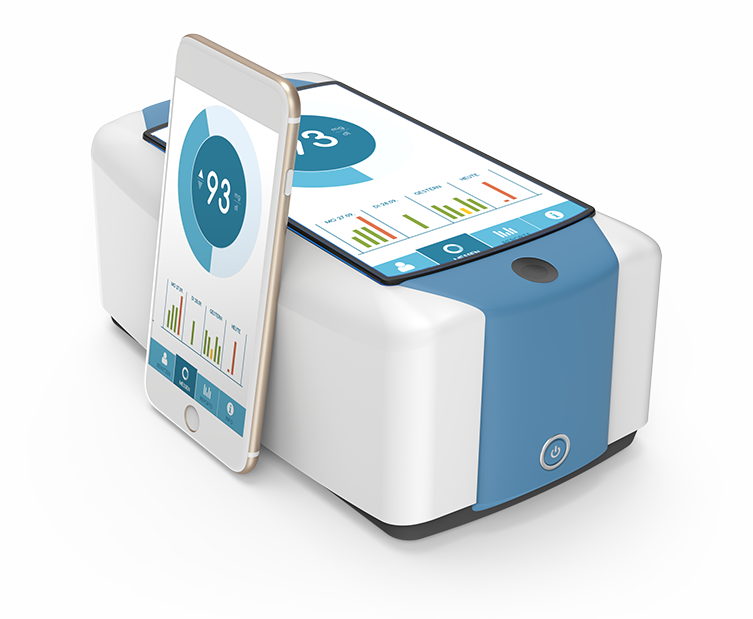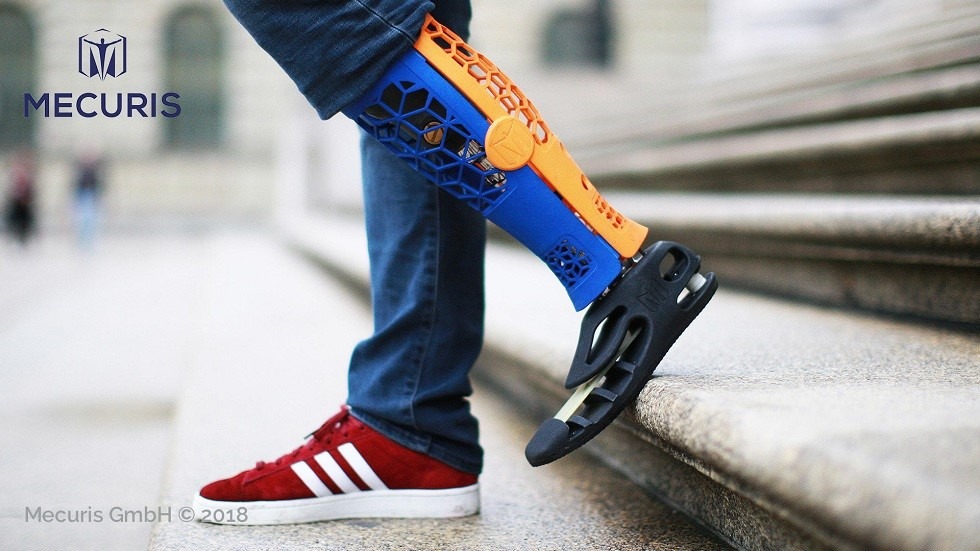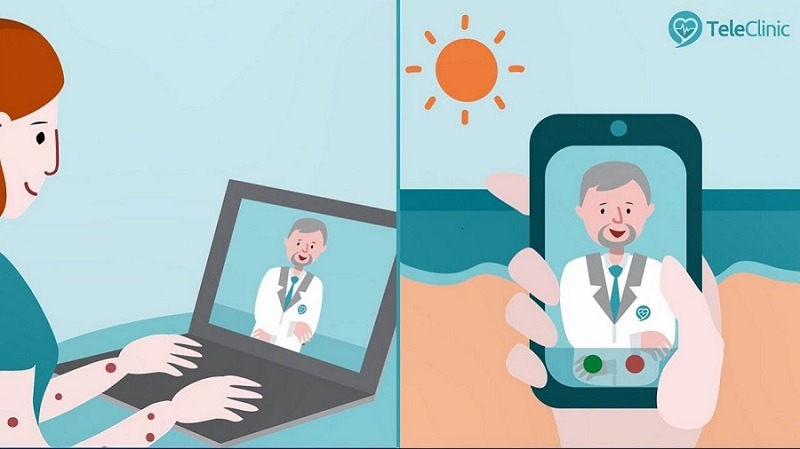
When it comes to innovations that will help people understand their bodies and live happier, healthier and longer lives, AI-driven medtech start-ups in Germany are reaching new heights with top-class technology and virtual services.
With innovations in fields such as AI and 3D printing, medical researchers and entrepreneurs are creating technology that allow for easy and more accurate diagnoses, improved treatments and customised prosthetics.
According to regulatory consulting firm Emergo, Germany’s medical device sector is the largest in Europe and the third most prolific on a world stage, accounting for 10.2% of global medical tech production after the US (39.6%) and China (11.1%).
Here, we profile a range of top medical companies based in Germany, using 3D-printing and high precision engineering with exotic materials, quickly adapting within the digital transformation era to develop cutting-edge healthcare technologies and services.
DiaMonTech

Medtech start-up DiaMonTech has developed a non-invasive medical device that measures blood glucose levels through infra-red technology eliminating the need for a needle prick to extract blood.
After researching measuring methods for 40 years, co-founders Thorsten Lubinski and Werner Mäntele found a way for diabetic patients to simply place their fingertip on a sensor to count the glucose molecules.
The result is displayed in between five to 15 seconds, with the pocket-sized device making it easy for users to quickly track of blood sugar levels wherever they are.
After the finger is placed on the sensor, a light beam is directed to it, which is then converted to heat by glucose in the user’s skin.
This minimal change in temperature is measured by the technology’s detection system, and this is then used to calculate the user’s blood sugar level.
Mika
Based in Berlin, digital health start-up Mika — My Interactive Cancer Assistant— aims to work as a digital companion for cancer patients.
Founded in 2017 by Dr Gandolf Finke and Dr Jan Simon Raue, the app provides information on treatment options, nutritional advice and relaxation exercises composed by physicians and psycho-oncologists. These delivered through features such as the Mika magazine and personalised therapy courses.
In addition to background information and motivational accounts from former patients, users can use the app to document everything from physical and mental well-being to treatment-related side-effects in a patient diary. This can then be referenced during appointments with physicians.
Mecuris

Founded in 2016, as a spin-off from the Ludwig Maximilian University, the Munich-based start-up is digitising prosthetics and orthotics — artificial supports for the limbs and spine — using CT scans, MRI imagery or 3D scans.
Since being granted CE certification in 2017, the company has been creating bespoke orthoses and prostheses, which can be further personalised through everything from colour and texture to ornaments and logos to help users express their personality.
Founded by Manuel Opitz and Wolf-Peter Werner, the web-based solution platform creates orthopaedic braces and artificial limbs in just three steps — cutting back on conventional design and production processes — which reduces both time and cost.
According to Mecuris, it digitises the adaptation processes, automates the design, and exploits the potential of state-of-the-art 3D printing technology.
Having raised €3.6m ($4m) in Series A funding in January 2019, the company intends to use the funds to reach into the European market, increase sales and to continue to develop digital solutions to complement its portfolio.
TeleClinic

Operating as a communications platform since 2015, TeleClinic’s 24-7 service offers voice and video tele-visits with practitioners of more than 30 clinical specialties.
Founder and medical director Professor Dr Reinhard Meier, noticed the trend towards telemedicine in the US and saw that it could significantly improve the patient experience.
CEO Katharina Jünger, said that she expects demand for telemedicine services to grow within Germany due to the country’s increasing number of elderly, care-intensive residents.
To help patients avoid crowded waiting rooms, the digital health platform offers doctor visits via smartphone and computer, along with links to more than 7,000 pharmacies throughout the country.
The app consists of a medical assistant, which will record the user’s request and connect them with an appropriate specialist.
It also alleviates some of the pressure put on emergency rooms providing direct care.
In addition, the digital consultation is free of charge for customers of health insurance companies that work with the TeleClinic.
Ada Health

Ada Health is a personal health companion app that uses AI and machine-learning combined with medical knowledge to help people understand and manage their health.
After six years of research and development, the app was launched in 2017 as a healthcare app that helps users work out what symptoms they have and deliver information on what might be the cause. It achieves this by asking relevant, personalised questions — instead of relying on Google.
The healthcare app can also connect users with doctors in a chat interface after the AI-powered symptom checker, which will then make a preliminary assessment for them to take to their personal GP. Ada has raised a total of $69.3m over three funding rounds.
Daniel Nathrath, CEO and co-founder of Ada Health, describes the app as a ‘doctor in your pocket’ and believes its app could eventually reduce healthcare spending by helping people avoid unnecessary trips to their GP.
The London- and Berlin-based company has was won 10 prestigious awards, including the Europas Hottest Health Start-up, a Silver Cannes Lions Award, and the AI for the Betterment of Humanity Prize.






